‘New and very exciting’: how the University of Derby is leading the way in ‘carbonomics’ – The Guardian

Report on the University of Derby’s Contribution to Sustainable Development Goals through Carbonomics
Introduction: Addressing Climate Change through a New Economic Discipline
In response to the global climate emergency, the University of Derby is pioneering research into the removal of carbon emissions from the economy. A key academic theme, “Zero Carbon,” has led to the development of “carbonomics,” an emerging discipline focused on the economics of transitioning to a low-carbon future. This initiative directly supports the United Nations’ Sustainable Development Goals (SDGs), particularly SDG 13 (Climate Action), by creating frameworks to balance the economic costs and opportunities of climate change mitigation.
Dr. Polina Baranova, Associate Professor of Strategy and Sustainability, defines carbonomics as a discipline that examines all business operations through the lens of carbon reduction and environmental impact, making it essential for achieving sustainable economic models as outlined in SDG 8 (Decent Work and Economic Growth) and SDG 12 (Responsible Consumption and Production).
Strategic Initiatives and Institutional Commitment to the SDGs
The University of Derby has implemented several strategic initiatives to embed sustainability and climate action into its core mission. These actions demonstrate a long-term commitment to fostering innovation and partnerships for a sustainable future.
- Establishment of the Institute of Carbonomics: The university is developing a dedicated Institute of Carbonomics, including a founding chair funded by industry. This initiative exemplifies SDG 17 (Partnerships for the Goals) by creating a collaborative hub for academia, business, and policymakers to advance climate solutions.
- Interdisciplinary Research Convergence: There is a growing convergence between business scholars and zero-carbon researchers. According to Professor Hassan Yazdifar, these interdisciplinary projects are designed to deliver tangible improvements in sustainability practices and strategic decision-making across economic sectors, directly contributing to SDG 9 (Industry, Innovation and Infrastructure).
- Enhanced Industry Collaboration: The relocation of the Derby International Business School to a new city-centre campus is intended to foster closer collaboration with industry on critical issues such as carbon capture and sustainable logistics, reinforcing the university’s commitment to SDG 9 and SDG 17.
Interdisciplinary Research Impact on Key SDGs
The university’s research extends across multiple domains, each contributing to specific Sustainable Development Goals through practical, real-world applications.
- SDG 14 (Life Below Water) & SDG 15 (Life on Land): Research is actively focused on nature-based solutions. This includes pioneering work on seagrass restoration to protect vital marine habitats and studies on enhancing carbon absorption in Derbyshire’s peatlands and agricultural landscapes to make ecosystems more resilient.
- SDG 12 (Responsible Consumption and Production): The Centre for Supply Chain Improvement, led by Dr. Jose Arturo Garza-Reyes, conducts research into green-lean logistics. This work has a global impact, helping organizations improve the sustainability of their supply chain processes.
- SDG 13 (Climate Action): The core focus on carbonomics and net-zero transitions underpins all related research, aiming to provide actionable strategies for businesses and governments to effectively reduce greenhouse gas emissions and mitigate global warming.
Developing Human Capital for a Sustainable Future
A critical component of the university’s strategy involves educating the next generation of professionals to lead the green transition, directly supporting SDG 4 (Quality Education).
Case Study: Auditing for Climate Accountability
The PhD research of Josiah Nii Adu Quaye, a postgraduate student and qualified accountant, explores how audit practices can drive climate accountability and promote sustainable financial disclosures. Key findings from this research indicate:
- Auditors are becoming essential figures in addressing the climate crisis by verifying corporate carbon footprint disclosures.
- A significant skills gap exists, with many auditors feeling unprepared to verify environmental, social, and governance (ESG) information.
- The future of auditing requires a fundamental mindset shift towards sustainability assurance, encompassing emissions reporting, supply chain transparency, and biodiversity impact.
This research aims to equip future auditors with the necessary skills to ensure corporate disclosures are accurate and transparent, thereby strengthening the framework for SDG 12 and SDG 13.
Identified Sustainable Development Goals (SDGs)
- SDG 4: Quality Education
- SDG 8: Decent Work and Economic Growth
- SDG 9: Industry, Innovation, and Infrastructure
- SDG 13: Climate Action
- SDG 14: Life Below Water
- SDG 15: Life on Land
- SDG 17: Partnerships for the Goals
Specific SDG Targets
-
SDG 13: Climate Action
- Target 13.2: Integrate climate change measures into national policies, strategies and planning. The article highlights the development of “carbonomics” as a discipline to study the balance between the economic costs of addressing climate change and the opportunities of a low-carbon economy. This directly supports the integration of climate solutions into business and economic strategies.
- Target 13.3: Improve education, awareness-raising and human and institutional capacity on climate change mitigation. The University of Derby’s creation of an “Institute of Carbonomics,” a “founding chair in carbonomics,” and research into “zero carbon” are direct efforts to build institutional and human capacity to tackle the “climate emergency.” The PhD research on upskilling auditors for climate accountability also falls under this target.
-
SDG 9: Industry, Innovation, and Infrastructure
- Target 9.4: Upgrade infrastructure and retrofit industries to make them sustainable, with increased resource-use efficiency and greater adoption of clean and environmentally sound technologies. The article discusses research into “green-lean logistics” and “sustainable logistics” to help organizations improve their supply chain processes. This promotes the adoption of cleaner, more efficient industrial practices.
- Target 9.5: Enhance scientific research, upgrade the technological capabilities of industrial sectors… encouraging innovation. The university’s focus on research that “directly addresses challenges facing modern businesses” and its plan to establish an “Institute of Carbonomics” to pioneer research in climate economics and sustainability are clear examples of enhancing scientific research to drive innovation in business.
-
SDG 17: Partnerships for the Goals
- Target 17.16: Enhance the global partnership for sustainable development, complemented by multi-stakeholder partnerships that mobilize and share knowledge, expertise, technology and financial resources. The article mentions the university has “forged crucial close links with industry and commerce – both in the UK and across the globe” and aims to “share insights, knowledge and strategies that support businesses and government.”
- Target 17.17: Encourage and promote effective public, public-private and civil society partnerships. The university’s work with “a wide range of industries and organisations, from major corporations to small businesses,” its success in “securing local, regional and European funding,” and the industry funding for the “founding chair of carbonomics” exemplify the promotion of multi-sector partnerships.
-
SDG 14: Life Below Water
- Target 14.2: Sustainably manage and protect marine and coastal ecosystems… and take action for their restoration. The article explicitly states the university is “undertaking pioneering work into seagrass restoration, one of the world’s most important yet rapidly declining marine habitats” and is focused on making “sea grasses and corals” more resilient.
-
SDG 15: Life on Land
- Target 15.3: Combat desertification, restore degraded land and soil… and strive to achieve a land degradation-neutral world. The article mentions the university is “finding ways to absorb more carbon from the atmosphere into Derbyshire’s peatlands,” which is a direct action toward restoring a terrestrial ecosystem.
-
SDG 4: Quality Education
- Target 4.7: Ensure that all learners acquire the knowledge and skills needed to promote sustainable development. The article describes a PhD student’s research to “equip the next generation of auditors with the skills they will need” for climate accountability, including “emissions reporting, supply chain transparency, and biodiversity impact.” This is a direct application of education for sustainable development.
-
SDG 8: Decent Work and Economic Growth
- Target 8.4: Improve progressively… global resource efficiency in consumption and production and endeavour to decouple economic growth from environmental degradation. The entire concept of “carbonomics” and the transition to a “low-carbon economy” as described in the article is about decoupling economic activity from carbon emissions and environmental impact, thereby improving resource efficiency on a macro scale.
Implied Indicators for Measuring Progress
-
SDG 13: Climate Action
- Indicator: Greenhouse gas emissions reporting and verification. The article discusses that “carbon reporting [is] mandatory for many organisations” and highlights a PhD research project focused on how auditors can “ensure these disclosures are accurate, transparent, and trustworthy.” This implies that the quality and quantity of verified carbon reports are key metrics for progress. This relates to official indicator 13.2.2 (Total greenhouse gas emissions per year).
-
SDG 4: Quality Education
- Indicator: Number of professionals trained in sustainability practices. The article mentions the need to “upskill auditors for a green future” and “equip the next generation of auditors with the skills they will need.” The number of students and professionals completing such training would be a direct measure of progress. This is a practical application of indicator 4.7.1.
-
SDG 9: Industry, Innovation, and Infrastructure
- Indicator: Adoption of sustainable logistics and supply chain practices by businesses. The article notes that research into “green-lean logistics is having an impact globally, helping organisations such as DHL and the Red Cross.” The number of organizations adopting these improved, sustainable processes serves as an indicator of impact. This relates to official indicator 9.4.1 (CO2 emission per unit of value added).
-
SDG 14 & 15: Life Below Water & Life on Land
- Indicator: Area of restored ecosystems. The article specifies work on “peatland restoration” and “seagrass restoration.” The progress of these projects can be measured by the area (e.g., in hectares) of peatlands and seagrass beds successfully restored. This relates to official indicators 14.2.1 and 15.3.1.
-
SDG 17: Partnerships for the Goals
- Indicator: Number and value of multi-stakeholder partnerships for sustainability. The article mentions “securing local, regional and European funding” and “industry partnerships.” The number of such collaborations and the amount of funding secured for sustainability research are tangible indicators of partnership effectiveness. This relates to official indicator 17.17.1.
SDGs, Targets, and Indicators Analysis
| SDGs | Targets | Indicators |
|---|---|---|
| SDG 13: Climate Action | 13.3: Improve education, awareness-raising and human and institutional capacity on climate change mitigation. | Quality and accuracy of mandatory carbon reporting by organizations, verified by auditors. |
| SDG 9: Industry, Innovation, and Infrastructure | 9.4: Upgrade infrastructure and retrofit industries to make them sustainable… with greater adoption of clean and environmentally sound technologies. | Number of organizations adopting “green-lean” and “sustainable logistics” practices. |
| SDG 17: Partnerships for the Goals | 17.17: Encourage and promote effective public, public-private and civil society partnerships. | Number of partnerships formed between the university, industry, and government; amount of funding secured for sustainability research. |
| SDG 14: Life Below Water | 14.2: Sustainably manage and protect marine and coastal ecosystems… and take action for their restoration. | Area of restored seagrass habitats. |
| SDG 15: Life on Land | 15.3: Combat desertification, restore degraded land and soil. | Area of restored peatlands capable of absorbing carbon. |
| SDG 4: Quality Education | 4.7: Ensure that all learners acquire the knowledge and skills needed to promote sustainable development. | Number of auditors and finance professionals upskilled with knowledge of climate disclosures and sustainability assurance. |
| SDG 8: Decent Work and Economic Growth | 8.4: Improve… global resource efficiency… and endeavour to decouple economic growth from environmental degradation. | Development and adoption of “carbonomics” principles in business strategies to transition to a low-carbon economy. |
Source: theguardian.com

What is Your Reaction?
 Like
0
Like
0
 Dislike
0
Dislike
0
 Love
0
Love
0
 Funny
0
Funny
0
 Angry
0
Angry
0
 Sad
0
Sad
0
 Wow
0
Wow
0















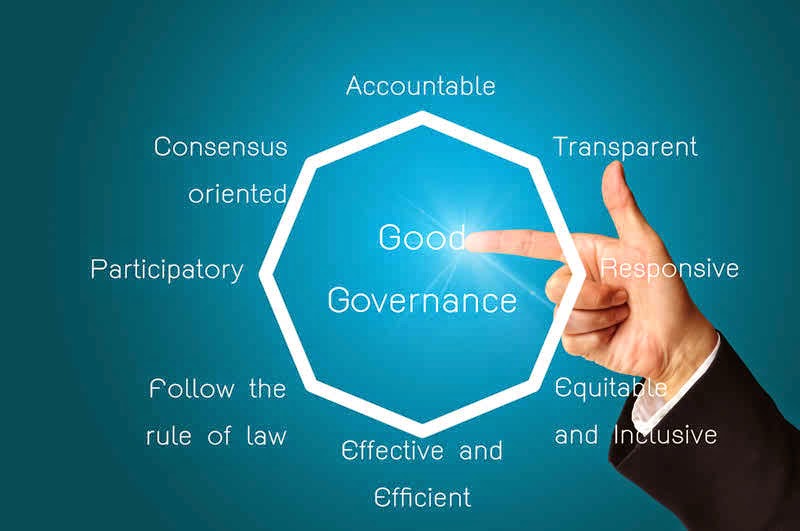

















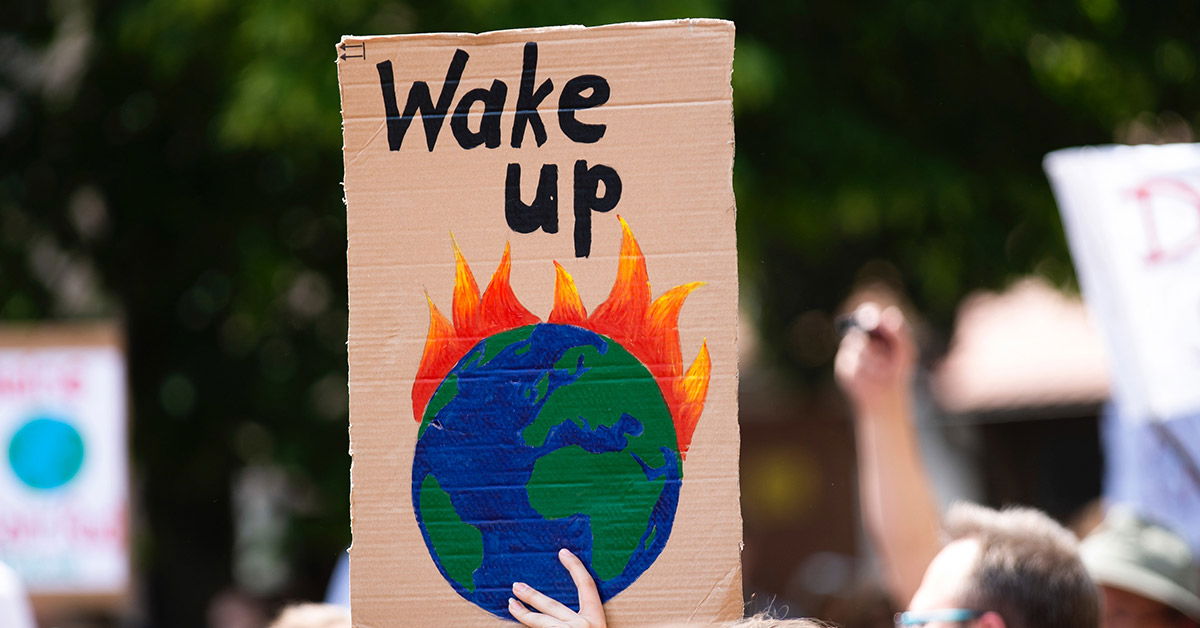

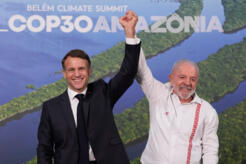
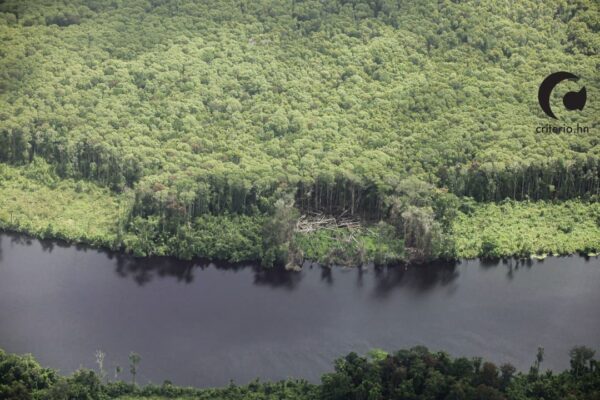






























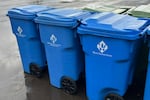
![Lancaster homeowner’s energy-efficient renovation sparks clash over historic preservation [Lancaster Watchdog] – LancasterOnline](https://bloximages.newyork1.vip.townnews.com/lancasteronline.com/content/tncms/assets/v3/editorial/9/ed/9ed03d32-c902-44d2-a461-78ad888eec38/69050b156baeb.image.png?resize=150,75#)








